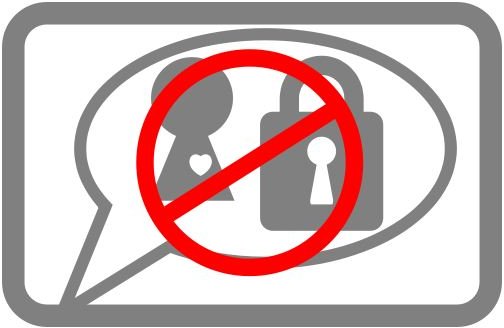How Employee Off-Work Privacy Rights Debates Affect You
Early Privacy Challenges of Employees
the whereaboutsAs modern technology overtook the workplace, issues of employee privacy arose. Access badges allowed employers to know the
whereabouts of every employee at all times during the work day. GPS transmitters on vehicles began keeping tabs on the driving habits of employees, and employee computer use became the subject of some debate. In all these cases, employers won decisive victories: as long as employees were on the clock, what they did was determined to have no protection under law or regulation. With that battle won, employers have gradually worked to challenge employee off-work privacy rights: the outcome of these cases are far from certain.
Image Credit: Wikimedia Commons/Mizusumashi
Employee Privacy Rights
Ever since employers began the routine background check and random drug test of employees, questions have been asked about what rights employers have over what workers do while off the job. After all, a person can do drugs on the weekend and still be an exemplary employee during the week, right? How about an employee who has had financial trouble and therefore has a damaged credit report? Does that credit report mean that the person is incapable of satisfactory performance at work? Similarly, just because a person made a bad choice in life and ended up in jail doesn’t mean that they cannot be a valuable asset during working hours. Workers clearly lost out in those early off-work privacy cases, but now face even more challenges to employee off-work privacy rights with the advent of potent technologies that employers can use to track employees even while they are off the clock.
Right to Work States and At-Will Employment
Although not the sole domain of employee off work privacy rights issues, right to work (or at will employment) states have led the way in cases of employee abuse. Simply stated, the so-called “right to work” means in actuality that no one has a right to work (why do politicians misname laws so often?). Where right to work laws are in effect, employers may terminate employees at any time without notice and without giving a reason for the termination. To make the laws seem fair, they give employees the right to quit at any time without notice or furnishing a reason.
In right to work environments, employees now can conceivably get fired because of race, gender, age, sexual preference, or religious and political views as long as the employer does not state that as a reason behind their termination.
In fact, with no reason required, employers don’t even have to lie, leaving employees in the dark about why they were fired although doing so often relives employers of the ability to challenge terminated workers’ unemployment compensation claims.
As the pendulum of public policy continues to swing toward employers, employees have little immediate hope that they will make any significant gains in the areas of civil and human rights.
Lifestyle Discrimination
With unionized government and private workers among the minority of American workers with any type of protection against termination without cause, an increasing portion of the non-union majority are becoming targets of lifestyle discrimination. This is where people who are overweight, smokers, drinkers, Facebook users, gun owners, political activists, or share any other lifestyle their employers don’t like risk termination at any moment.
Some progress is being made, however: some states have already enacted laws stating that employees cannot be terminated for any legal activity that they participate in while not working. This sounds like tangible protection of employee off work privacy rights except for the fact that no government seems capable of forcing employers to be honest concerning the reasons for terminating employees.
Europe seems poised to institute legal privacy protections, forbidding employers to make employment judgments based on data gleaned from online venues such as Facebook.
Practical Advice
Seeing the vulnerability of most workers to at-will termination, employees must be aware of the risks they face. Even if legal safeguards were in place that protected privacy and prevented lifestyle discrimination, no employee will ever be safe from it as long as at-will and right to work rules prevail.
Online powerhouses seem unconcerned about the effect their services can have on the lives of its users. For example, an unrepentant Google CEO Eric Schmidt told an interviewer that people will probably have to change their names to escape the unfavorable data his site stores about them.
Employees should take careful account of what they publish on Facebook and other online venues because they have no employee off work privacy rights. Don’t let other people see your Facebook friends, and don’t even let employers know in which part of town you live. Make an effort to present a professional, well behaved front online or else risk your career with every friend you make and with deed you do.
